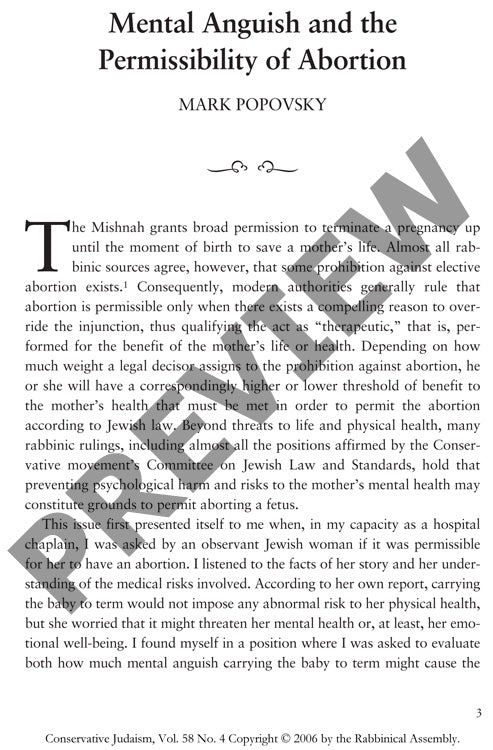Mental Anguish and the Permissibility Of
Couldn't load pickup availability
When Jewish women seek religious guidance about abortion for mental health reasons, they encounter widely divergent rabbinic opinions - from those requiring evidence of suicidal intent to those accepting general emotional distress as sufficient grounds. Drawing on experiences as a hospital chaplain confronting cases where psychological rather than physical concerns dominated, this research maps the spectrum of halakhic positions on mental health-based abortion while examining scientific evidence about psychological risks in unwanted pregnancies. Analysis of modern responsa across Orthodox and Conservative movements reveals significant variation in how religious authorities weigh mental anguish. Contemporary medical literature demonstrates that unwanted pregnancies correlate with increased depression, anxiety disorders, domestic violence, and reduced long-term maternal wellbeing, though quantifying mental suffering remains challenging. While pregnancy generally reduces suicide risk, specific populations - particularly women who must discontinue psychiatric medications - face elevated psychological dangers. Both halakhic decisors and healthcare providers lack adequate frameworks for assessing psychological harm in pregnancy termination decisions. The findings support an approach emphasizing informed, case-specific evaluation that honors both textual precedent and individual circumstances, while acknowledging the limitations of universal standards at the complex intersection of religious law, medical ethics, and women's mental health.

More Information
-
Physical Description
-
Publication Information
Published 2006
ISBN
-
Publication Credits
Mark Popovsky

